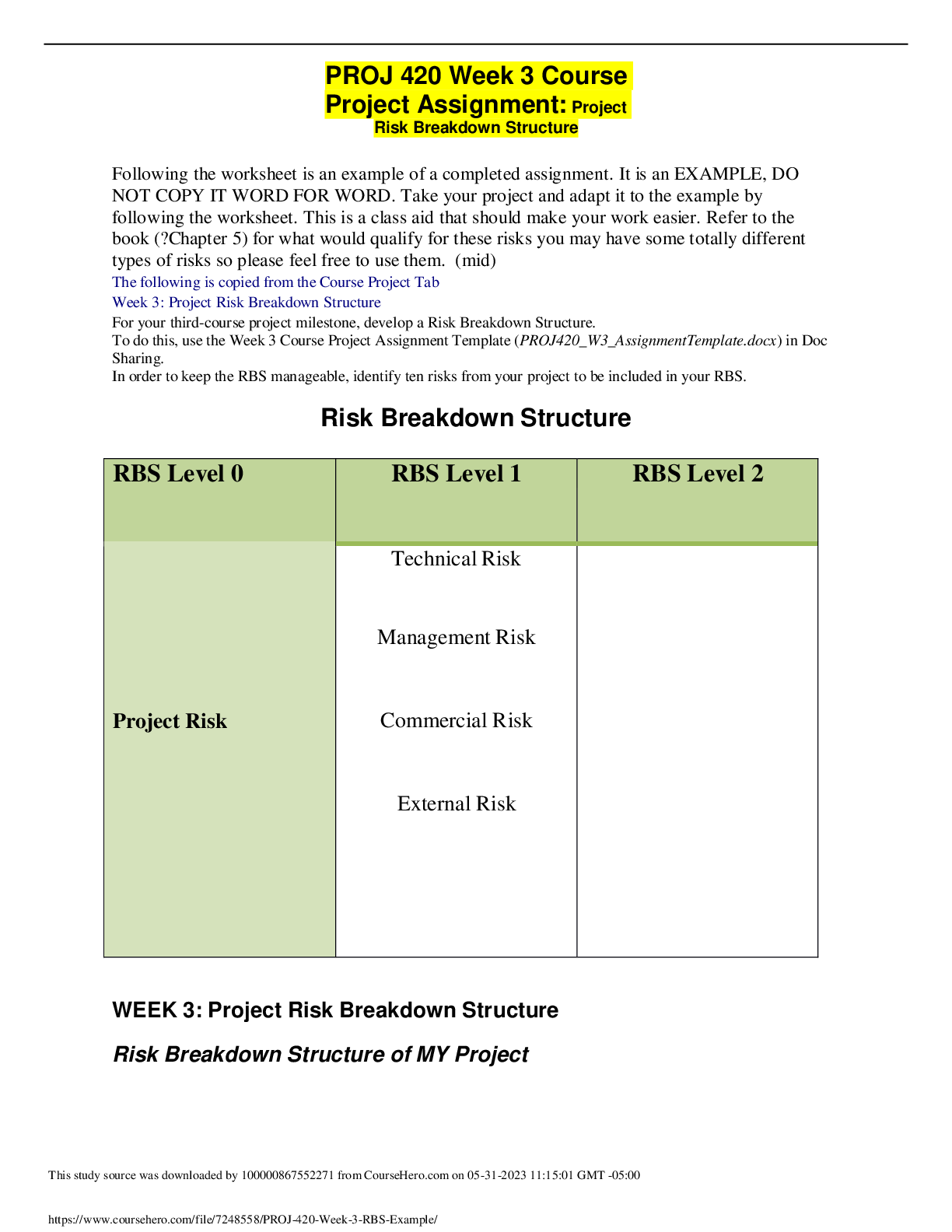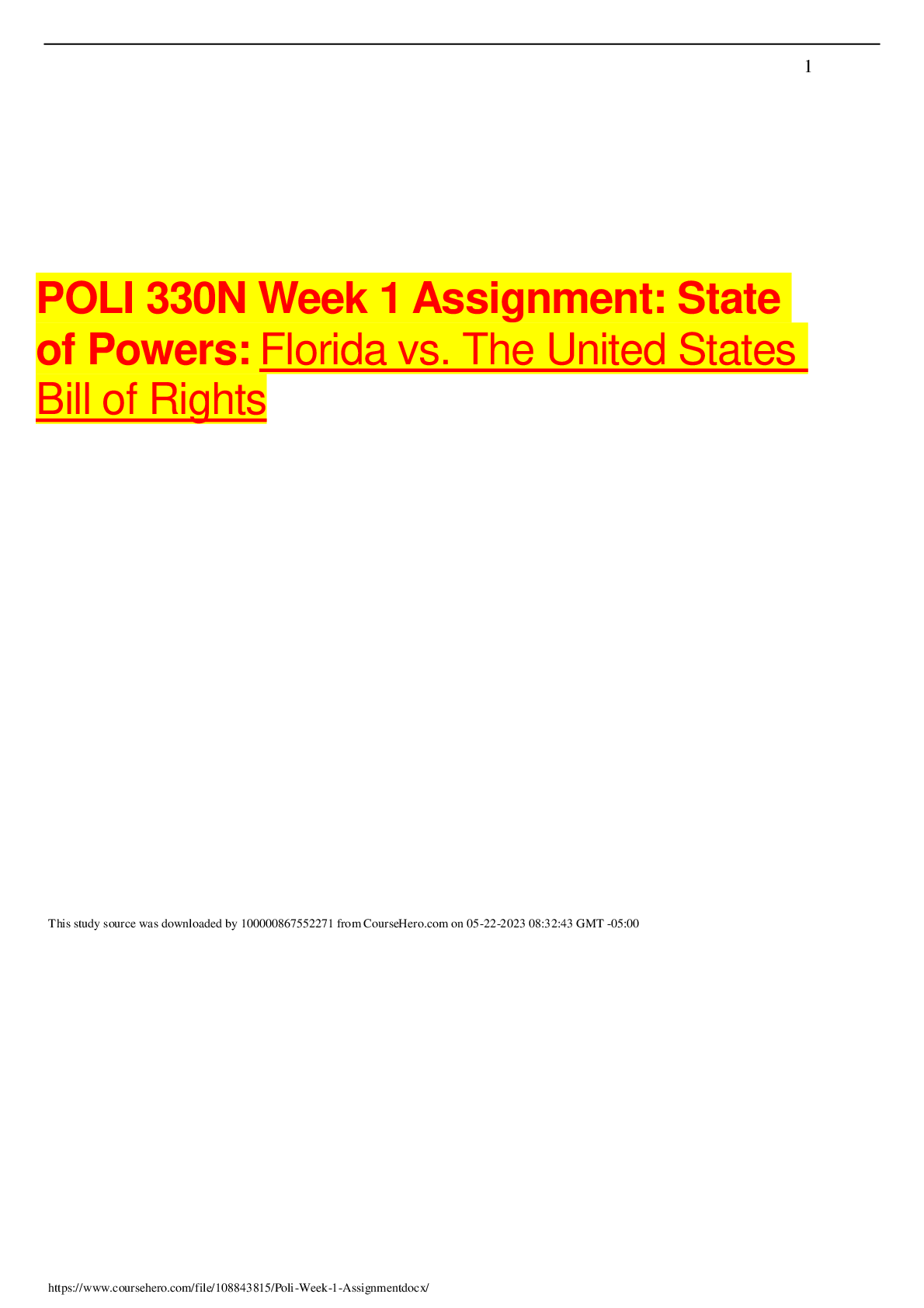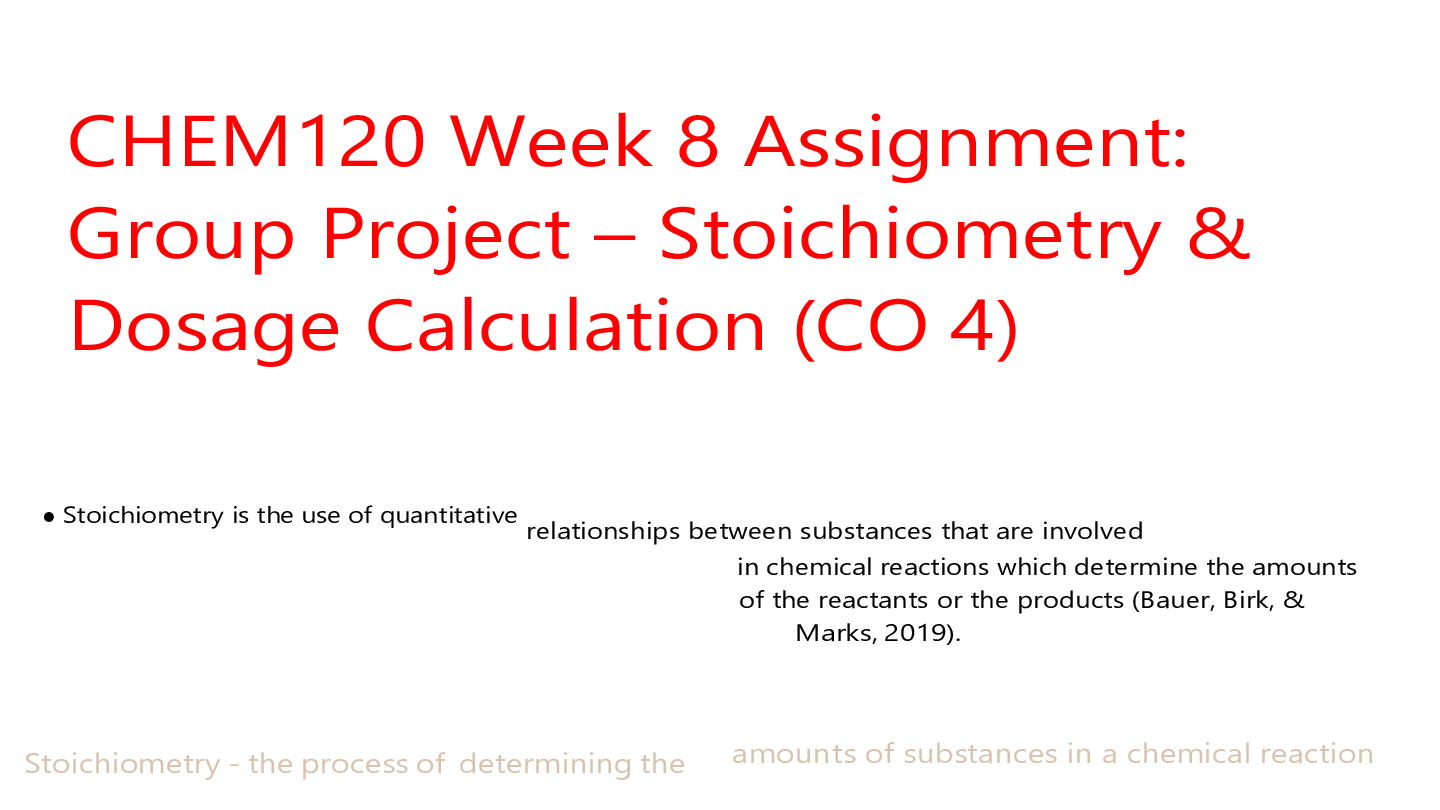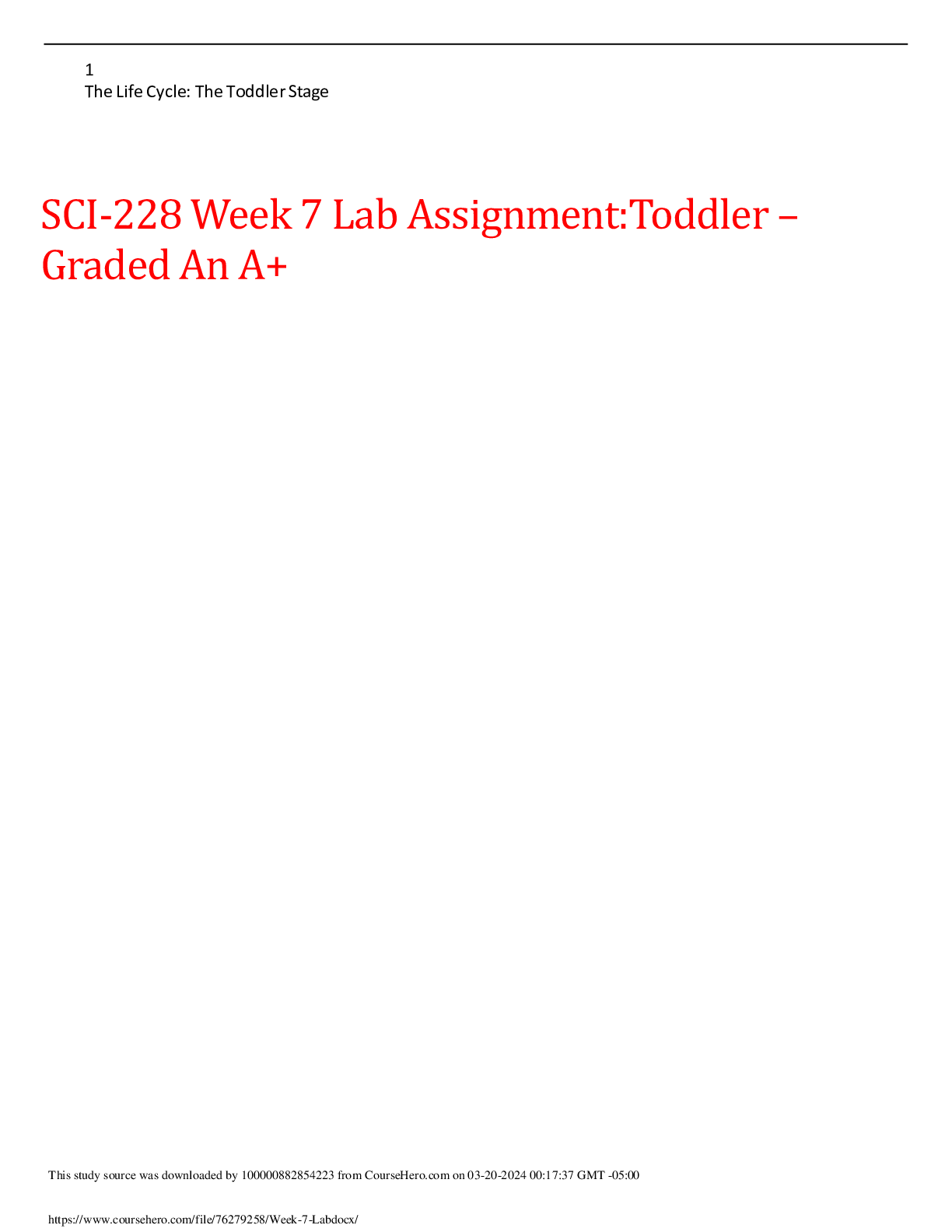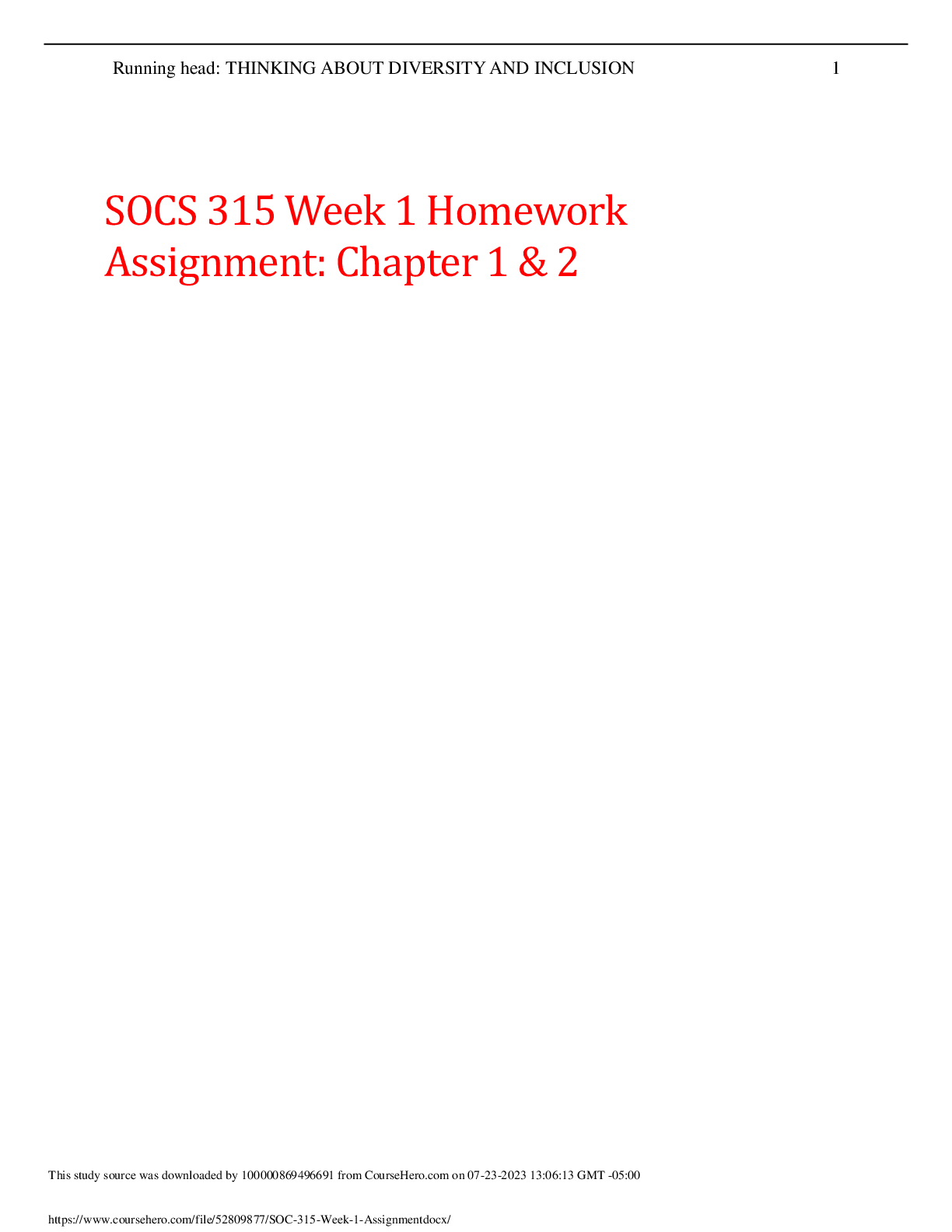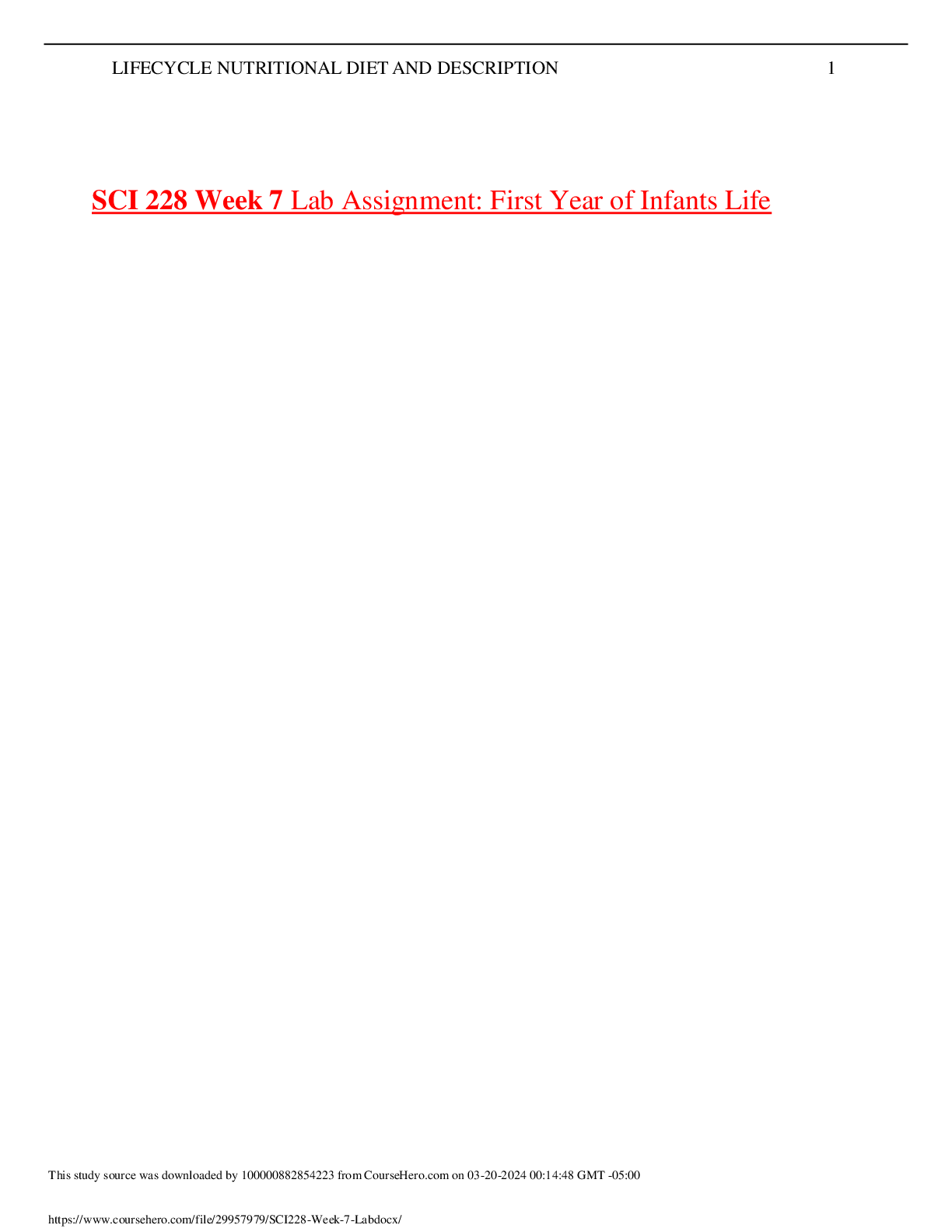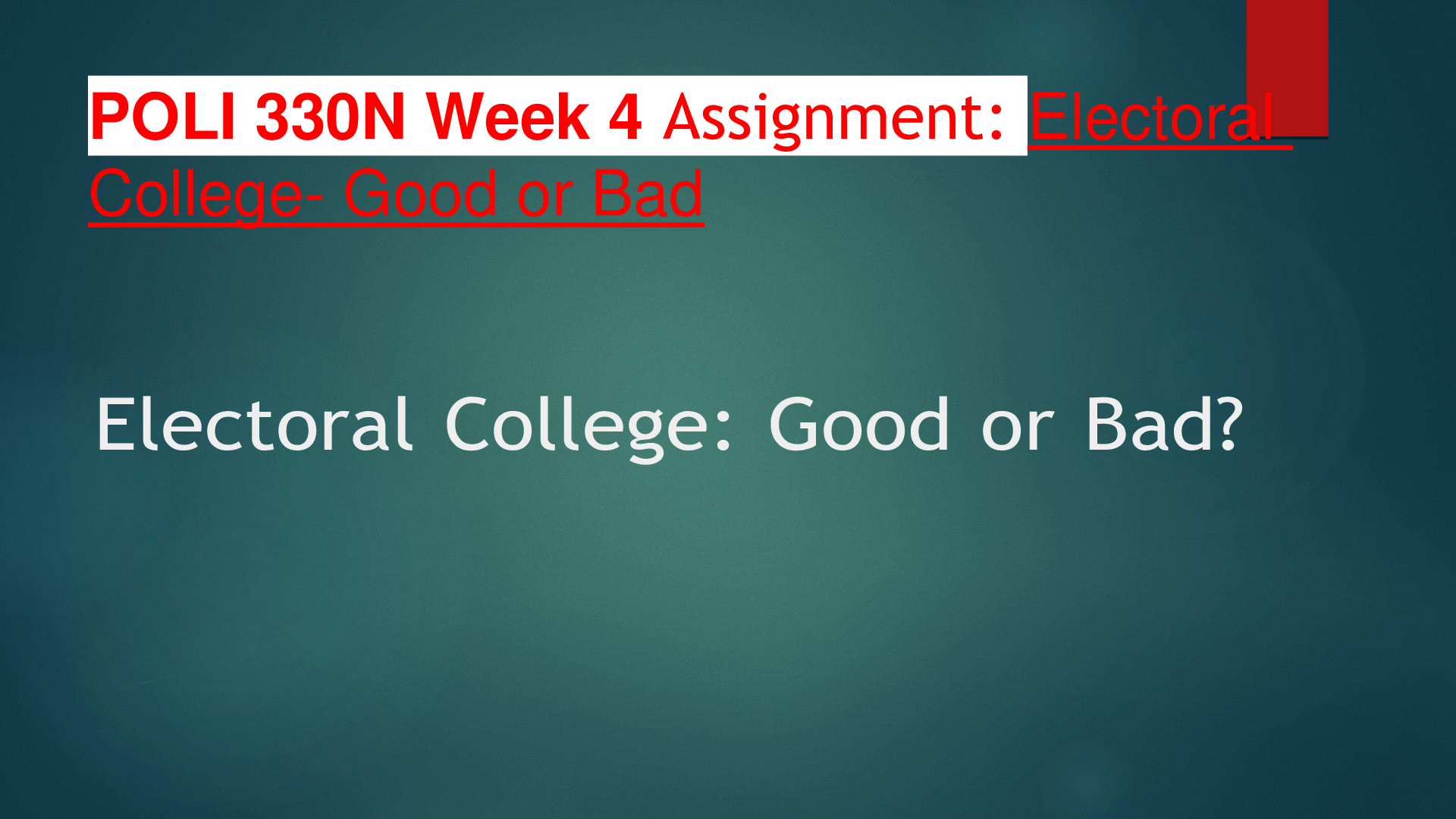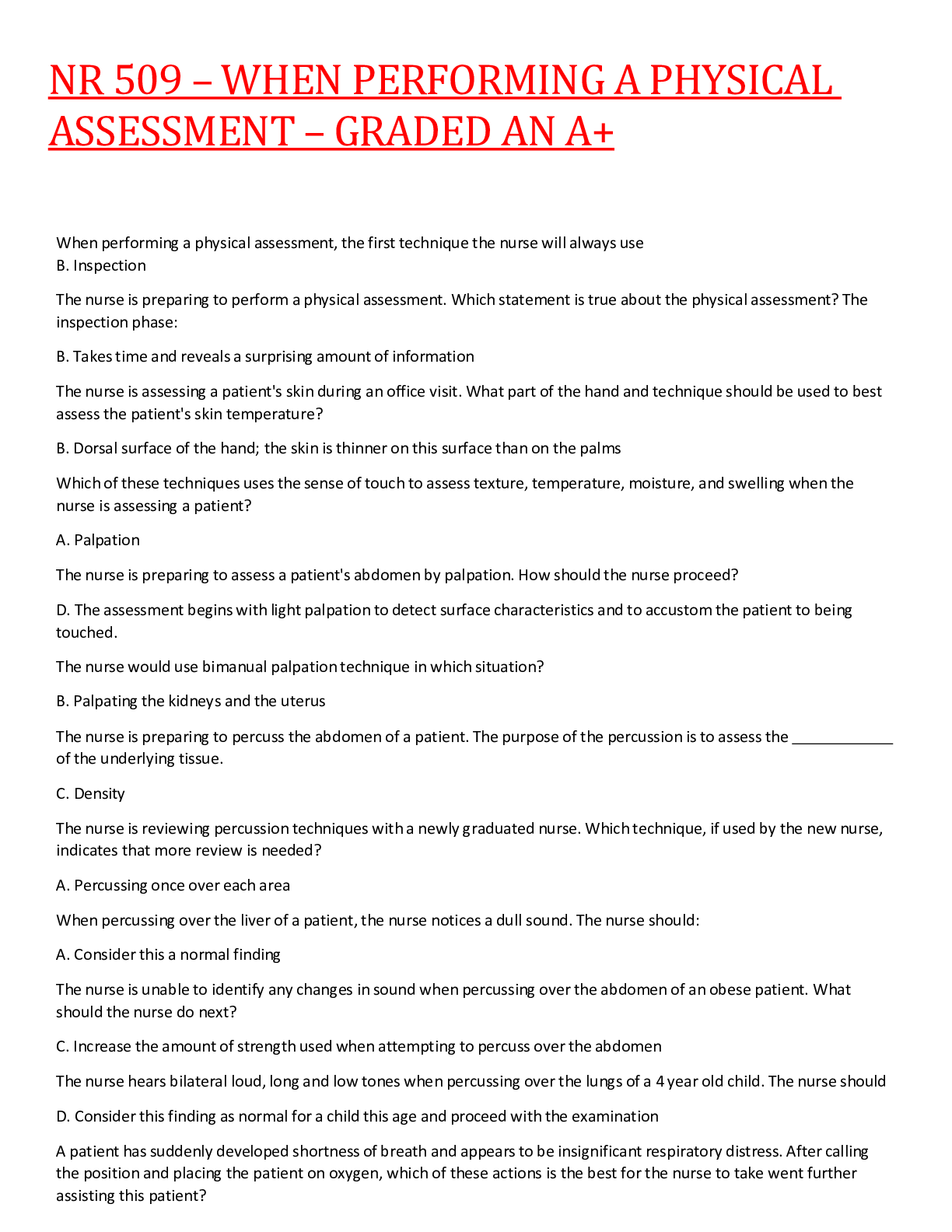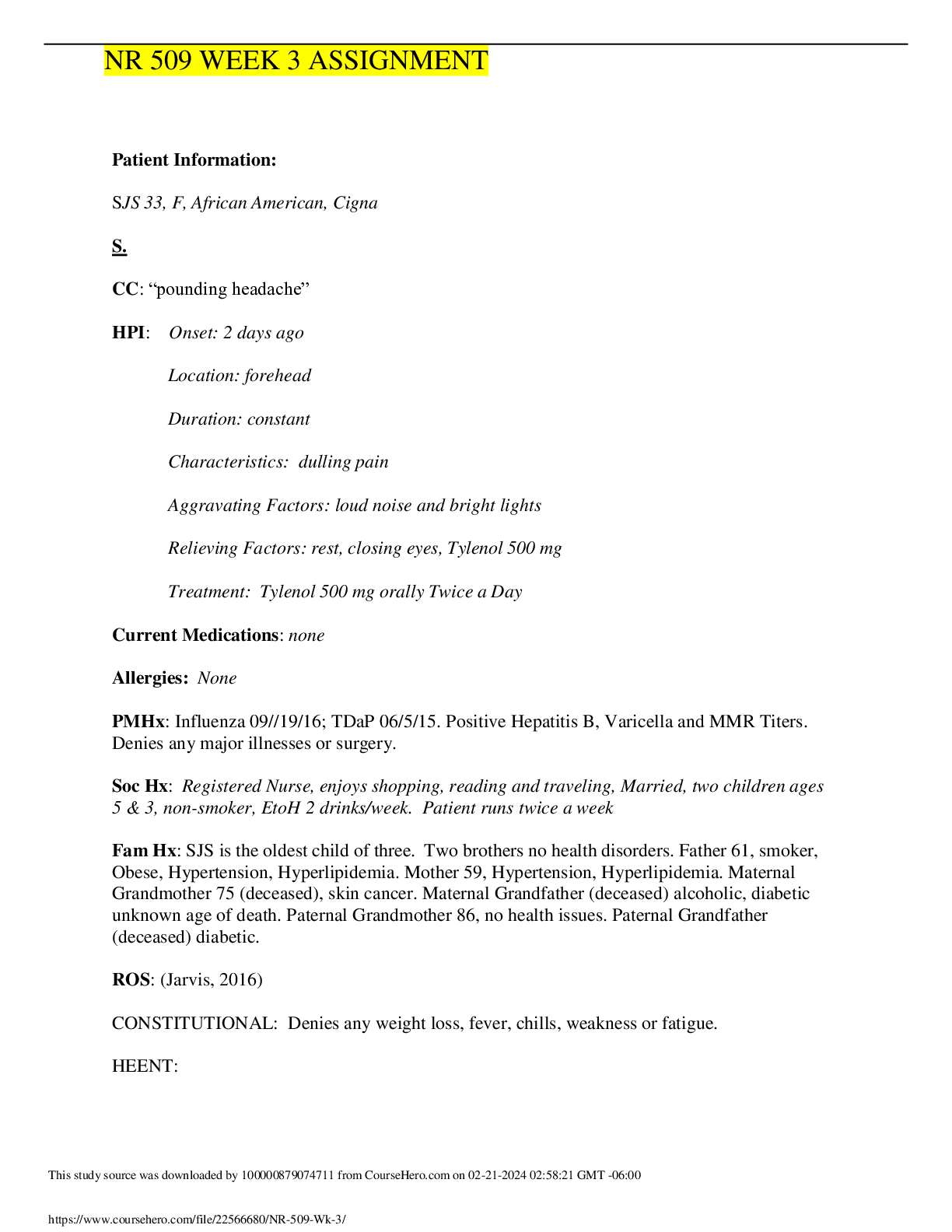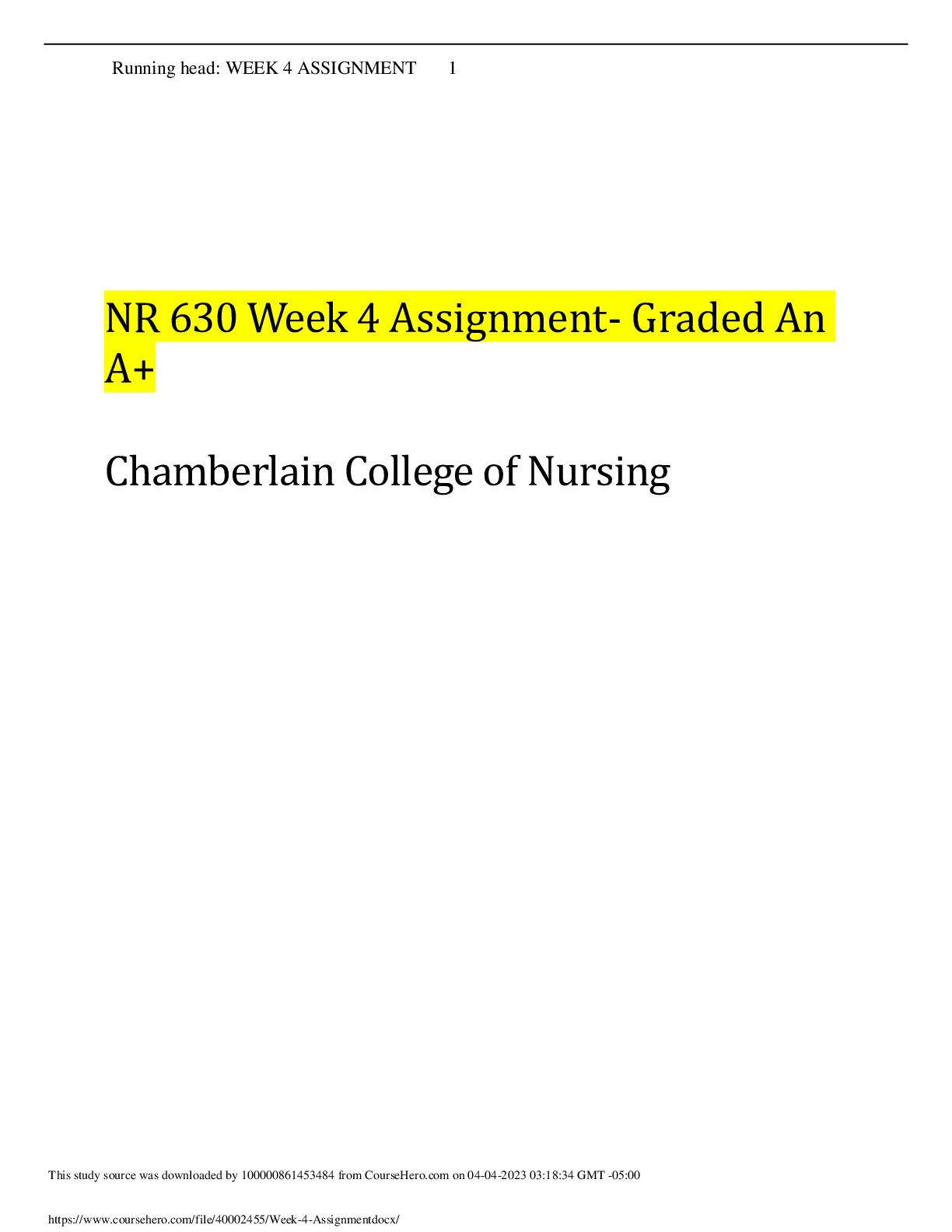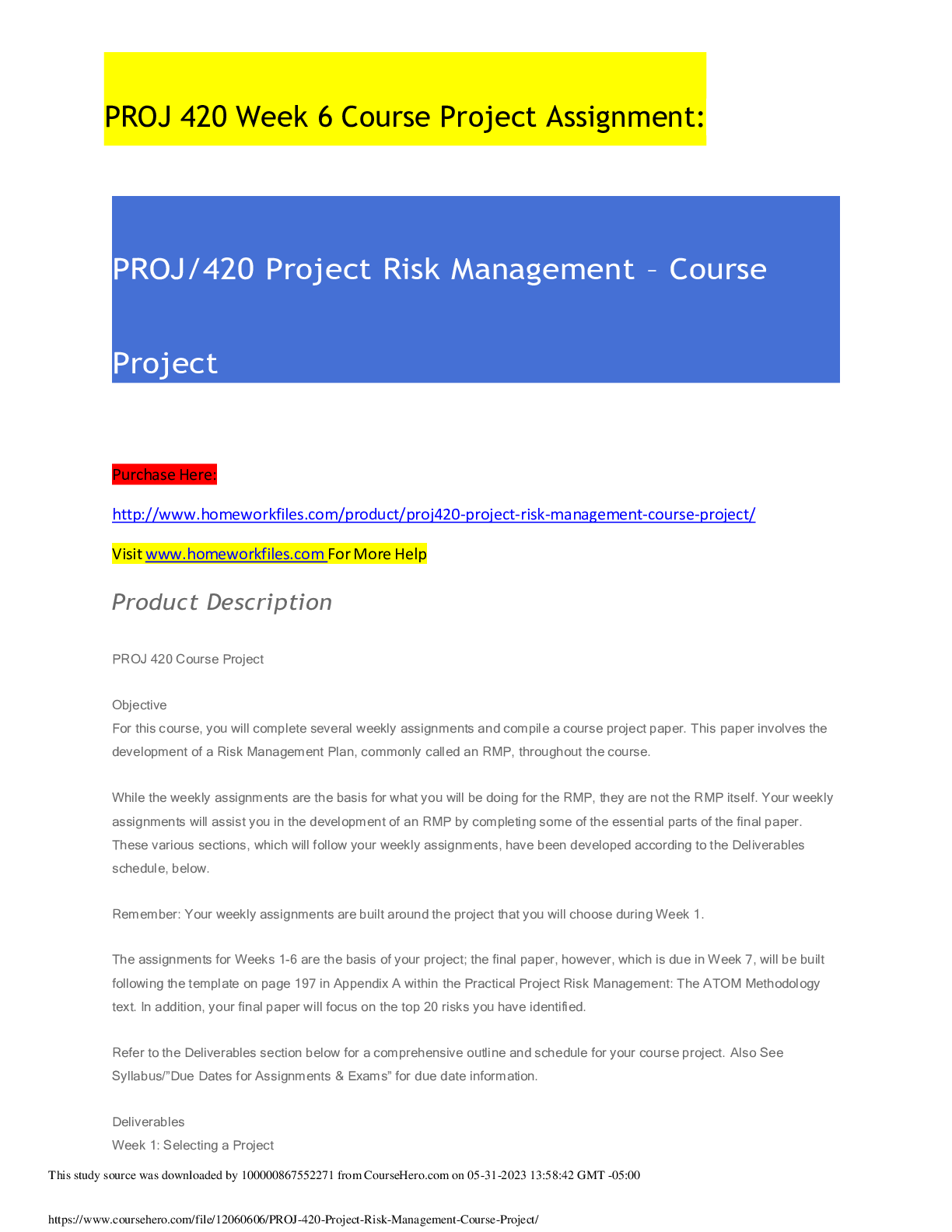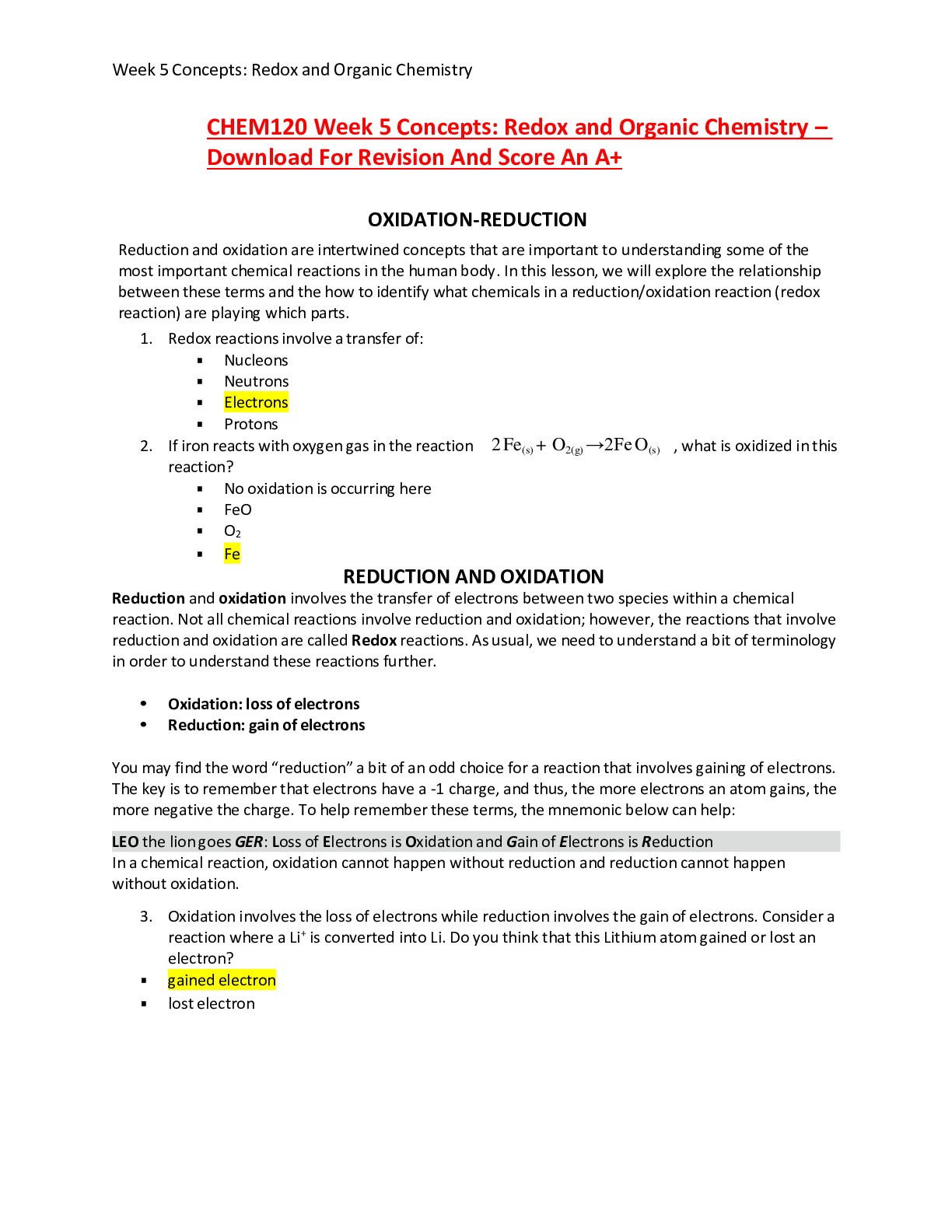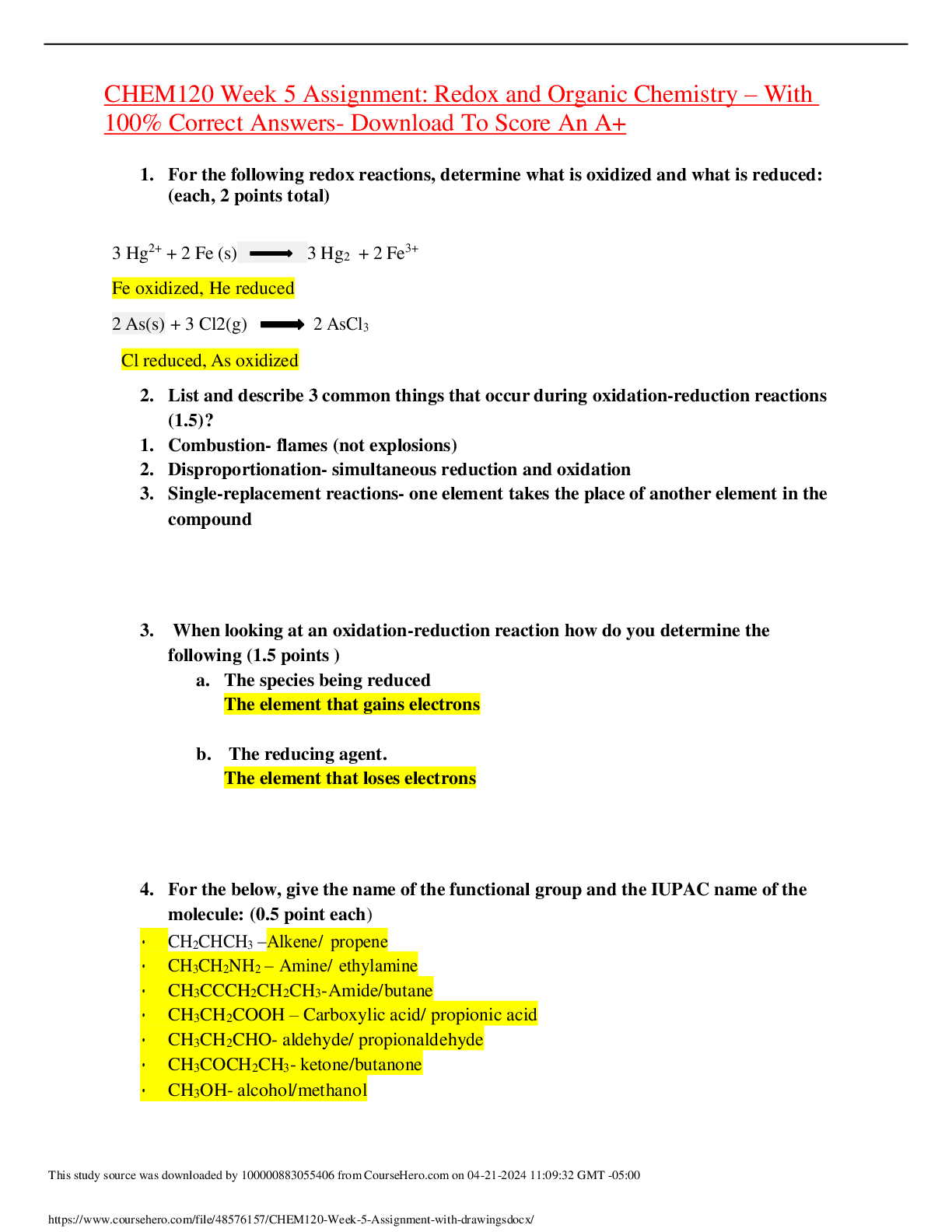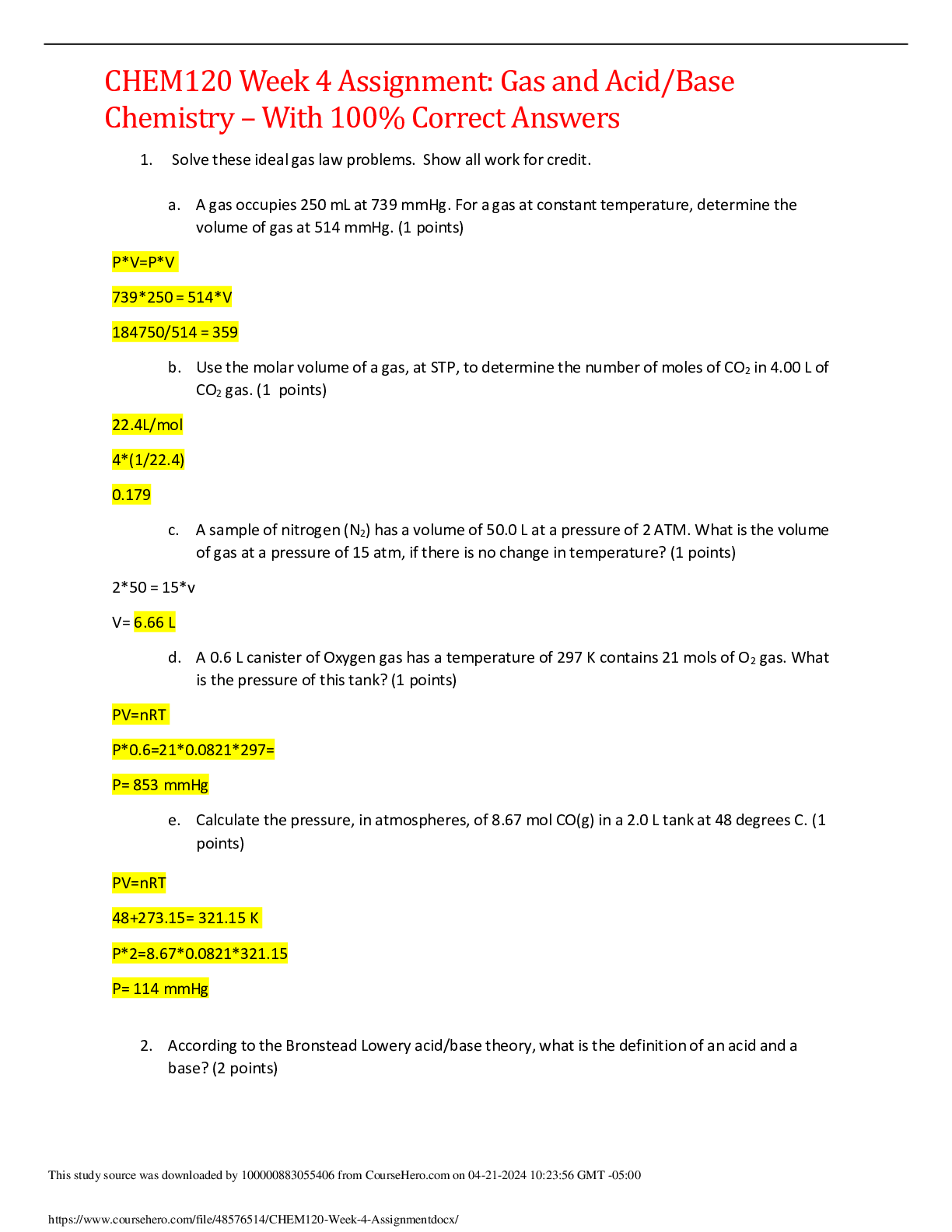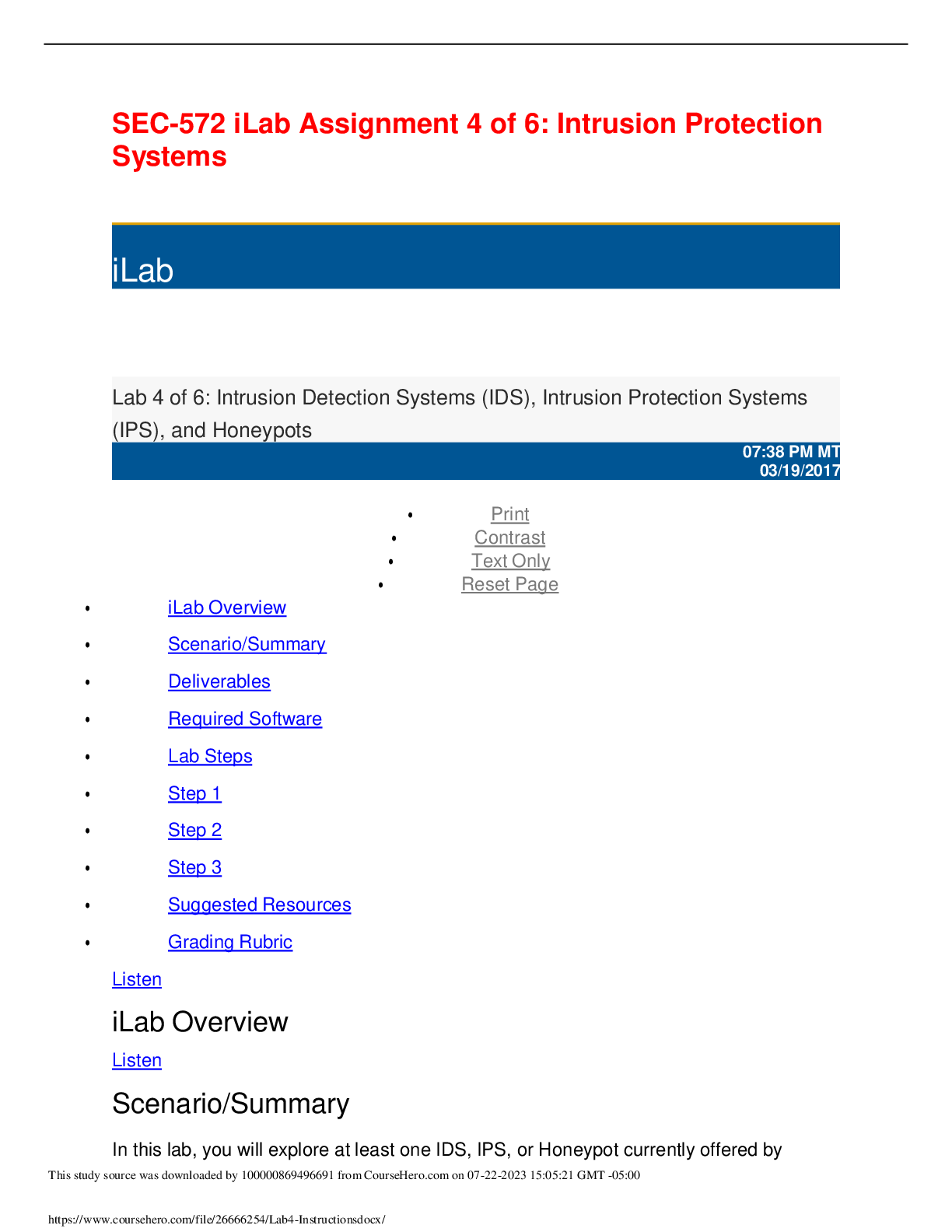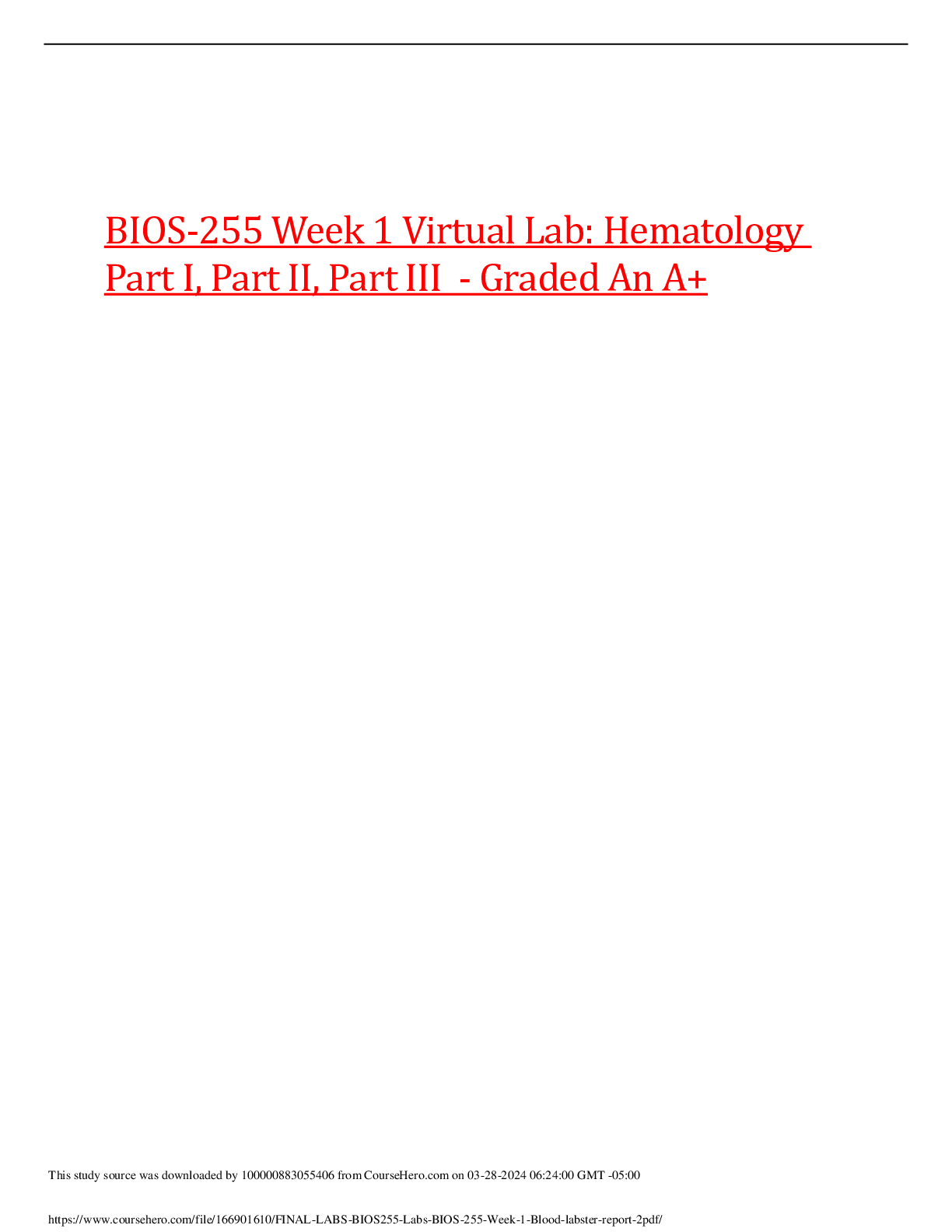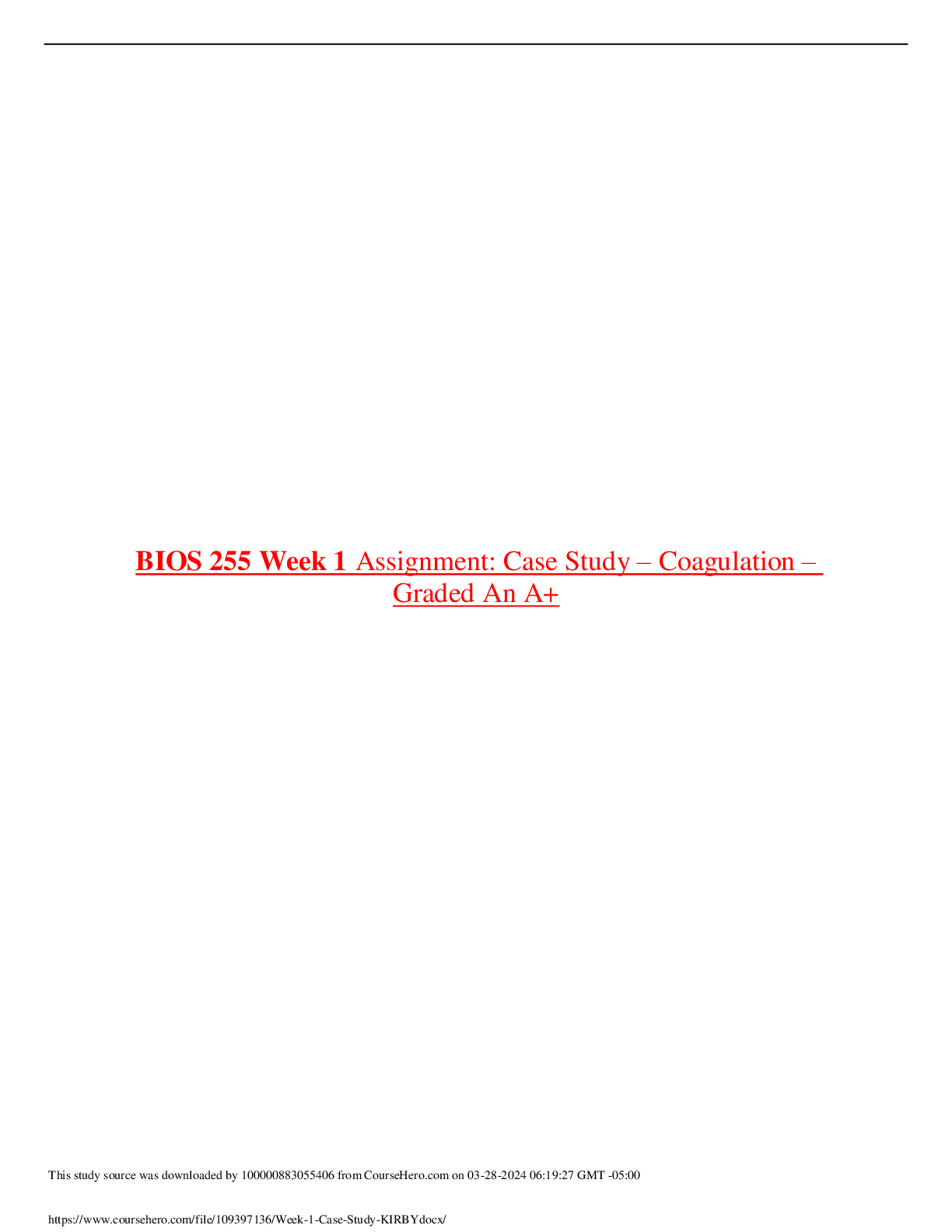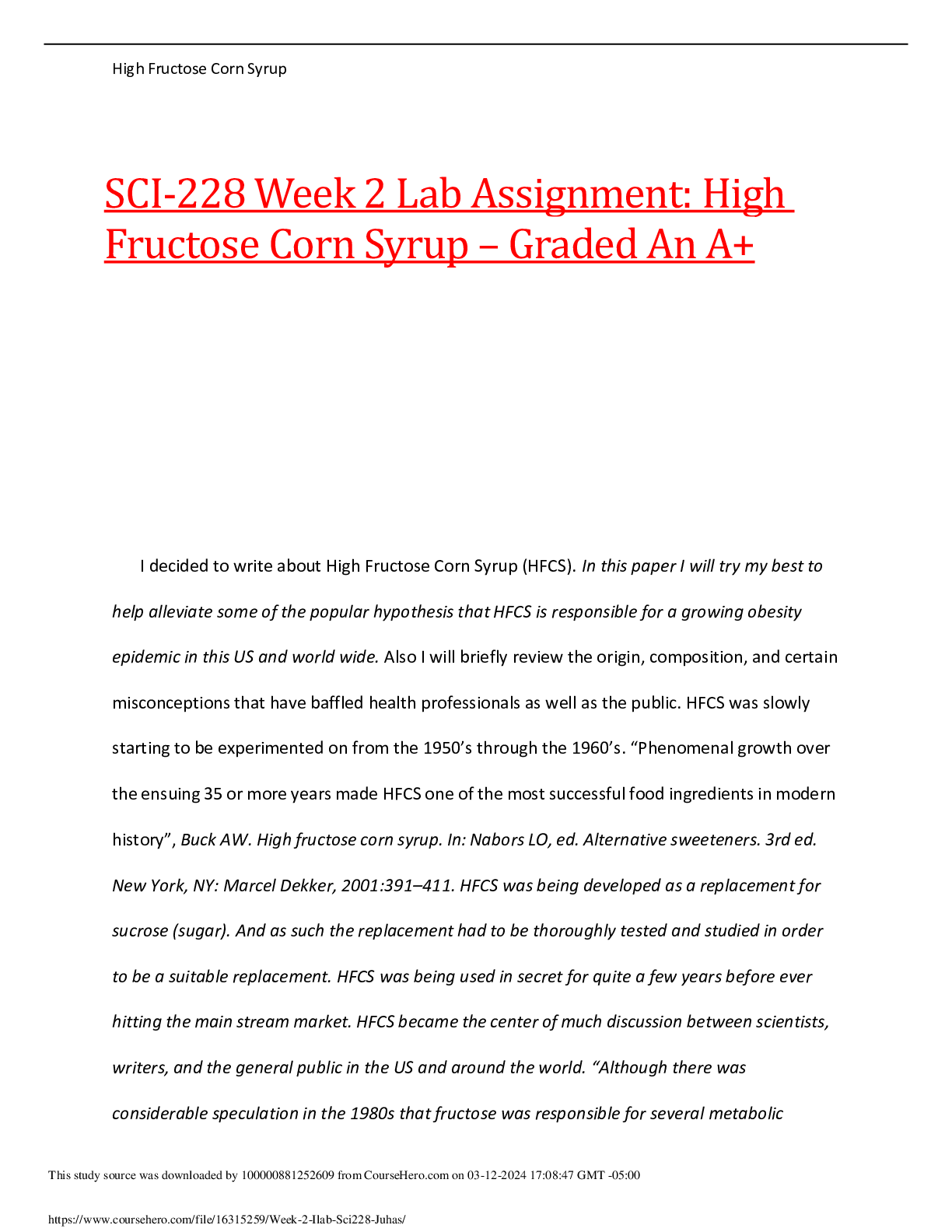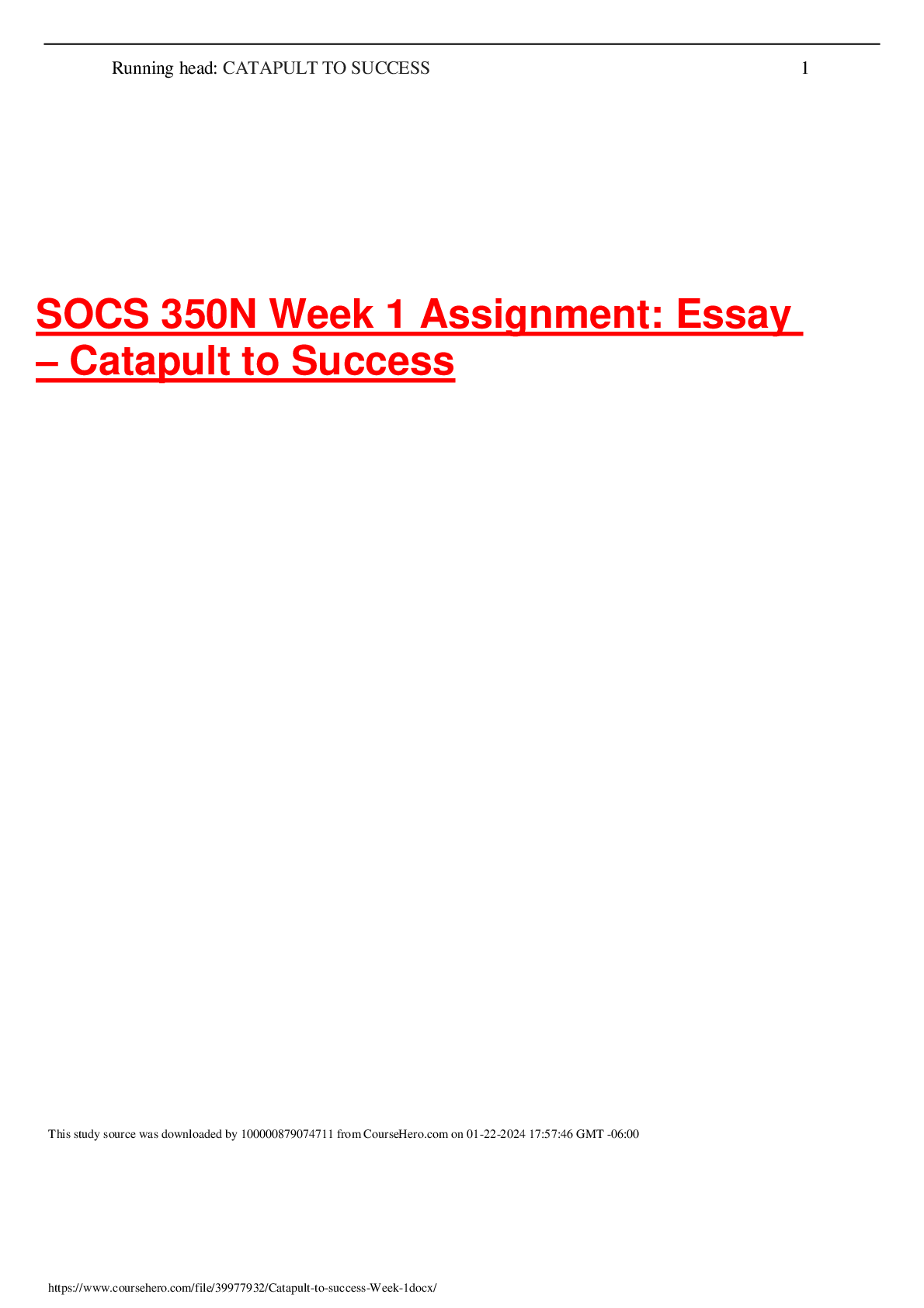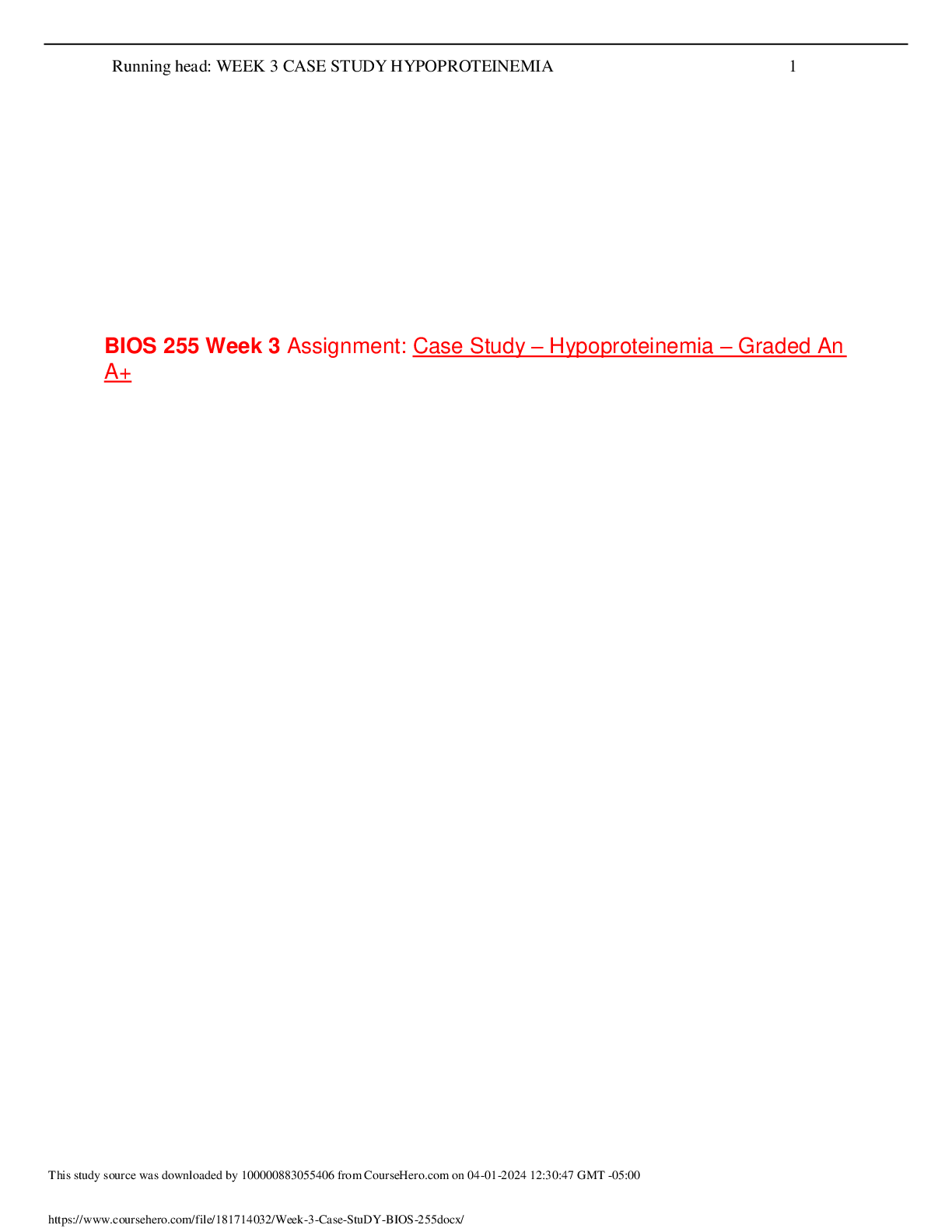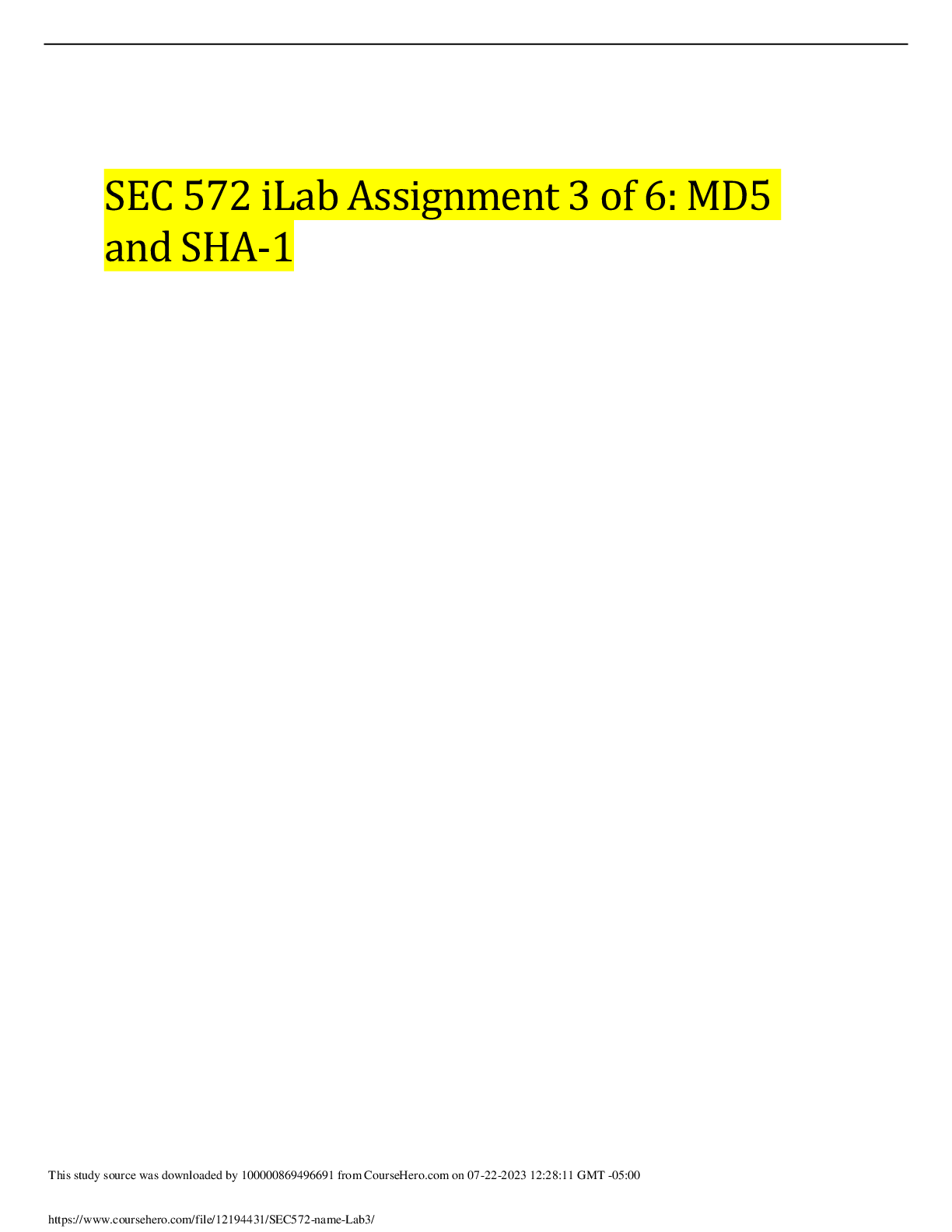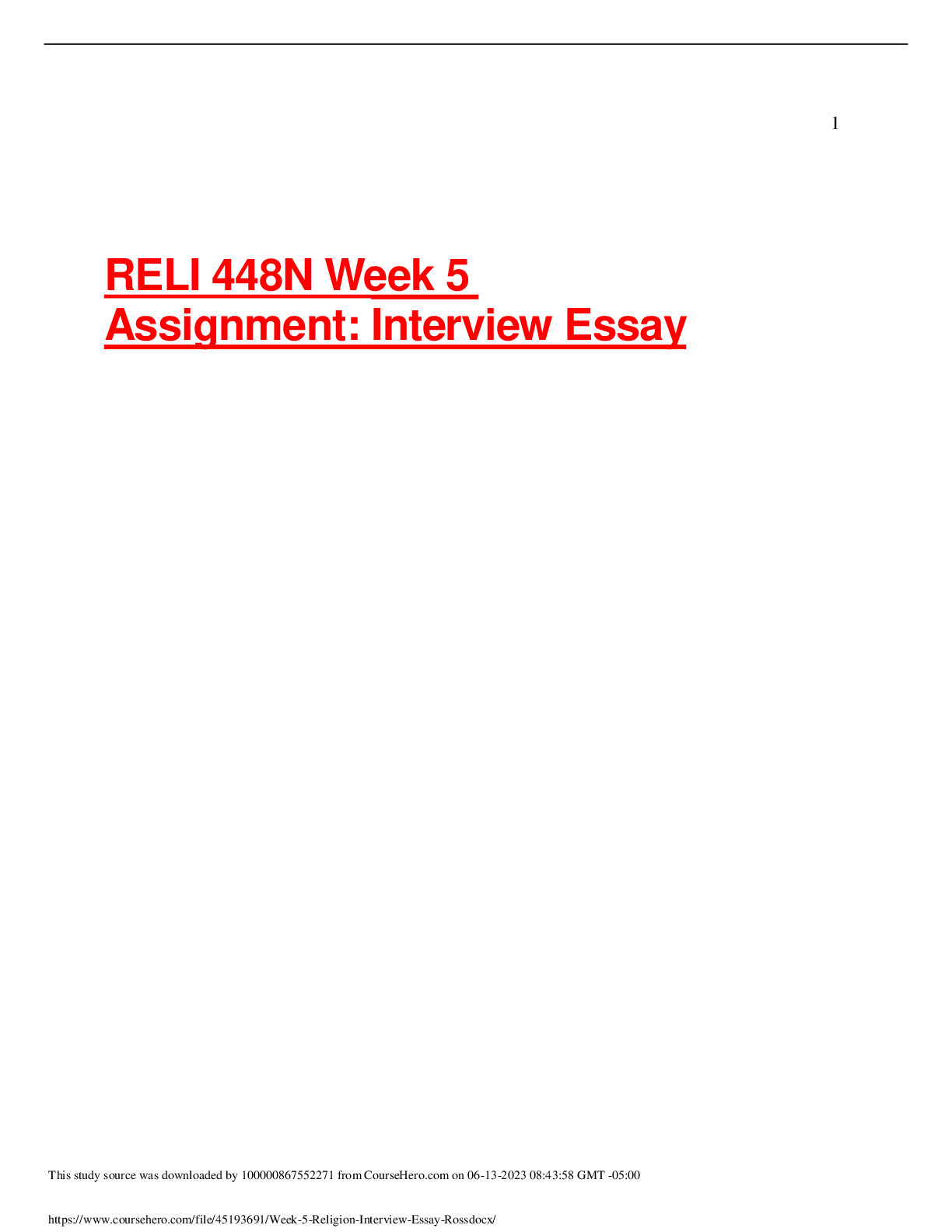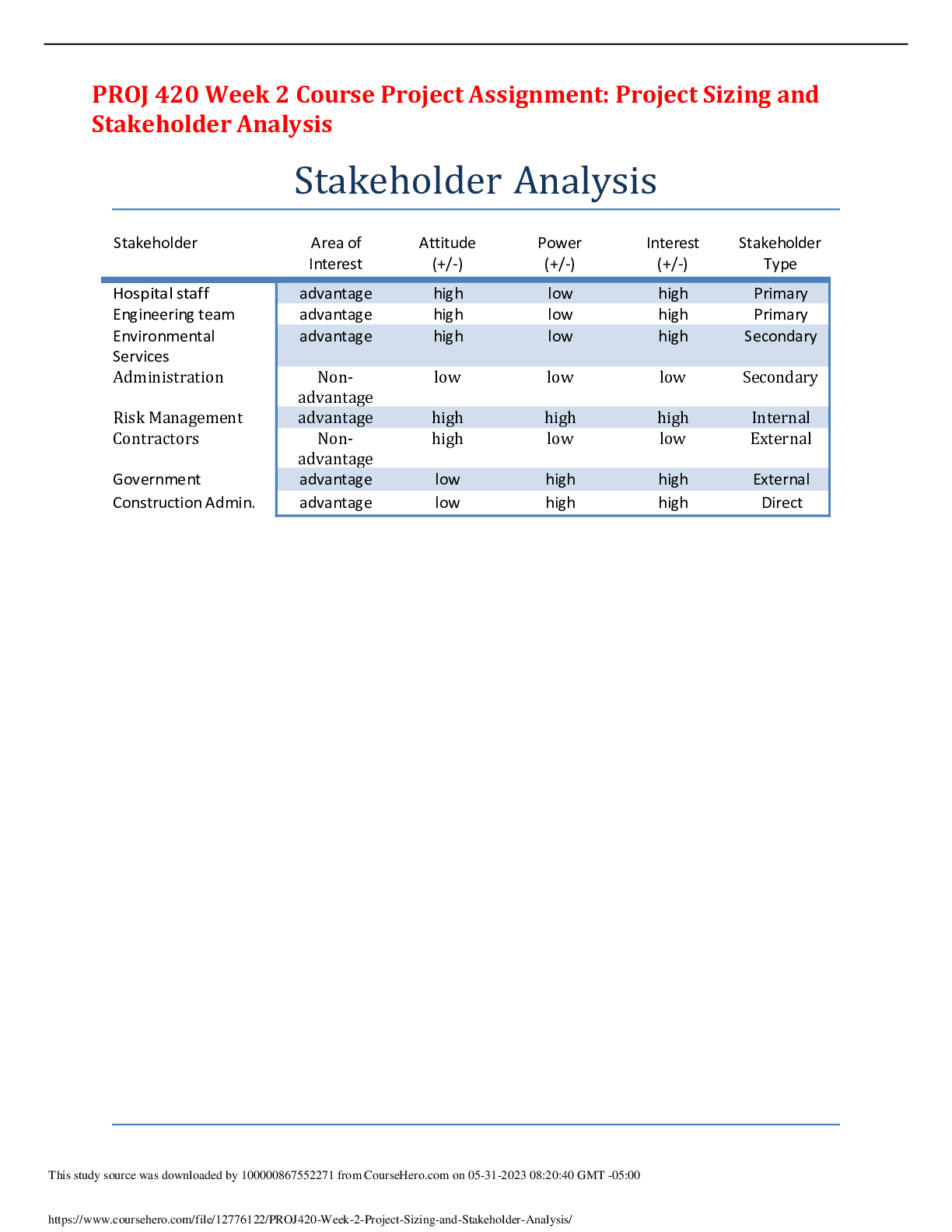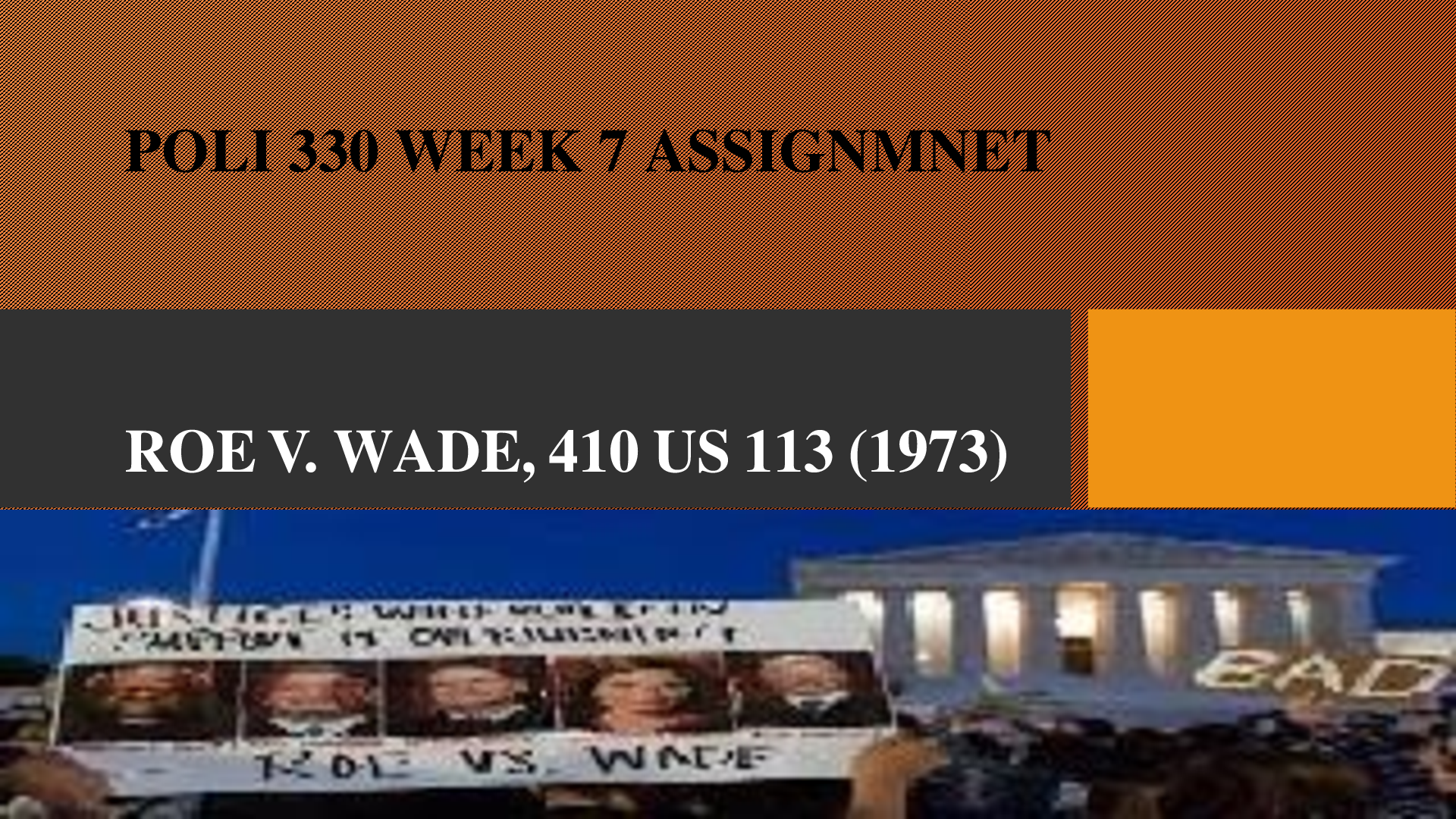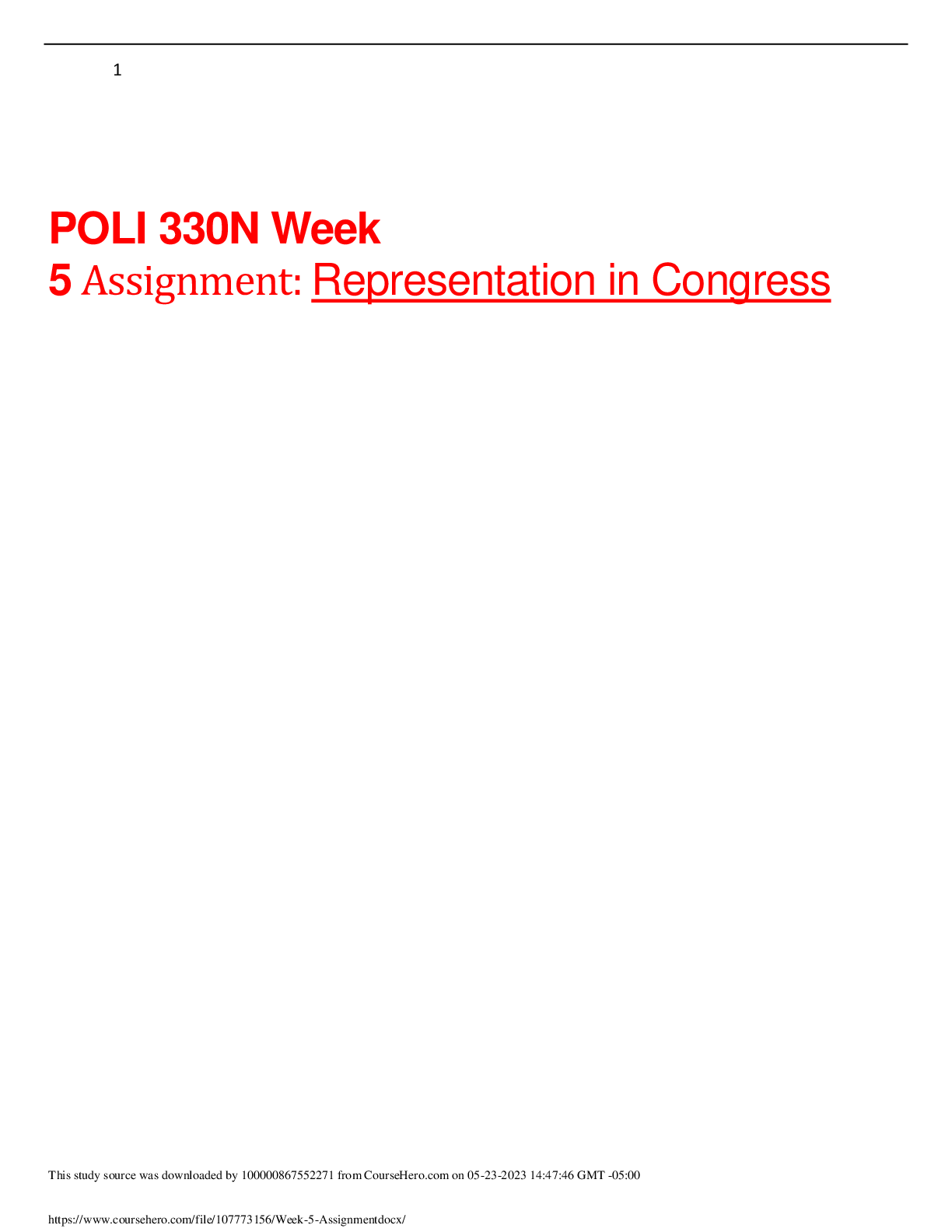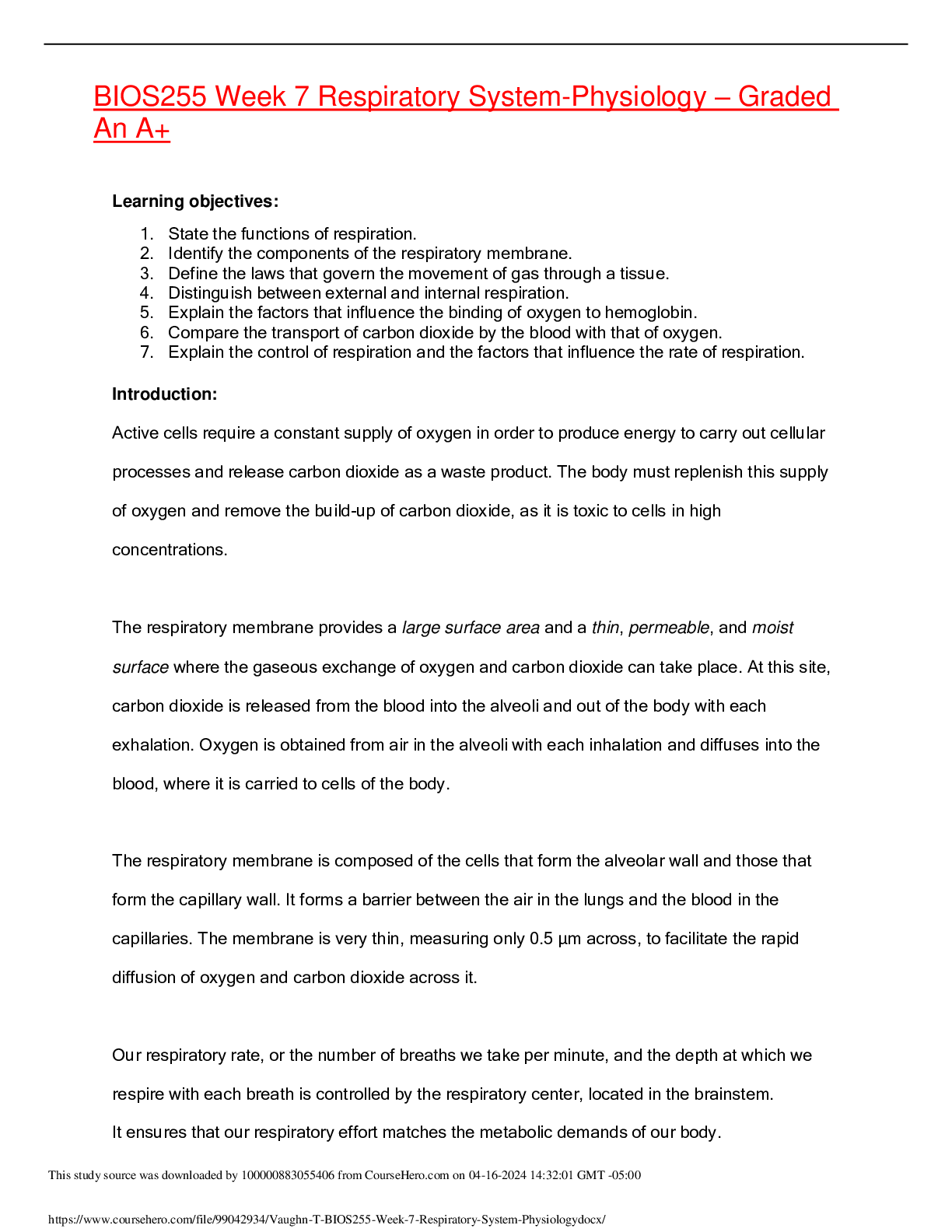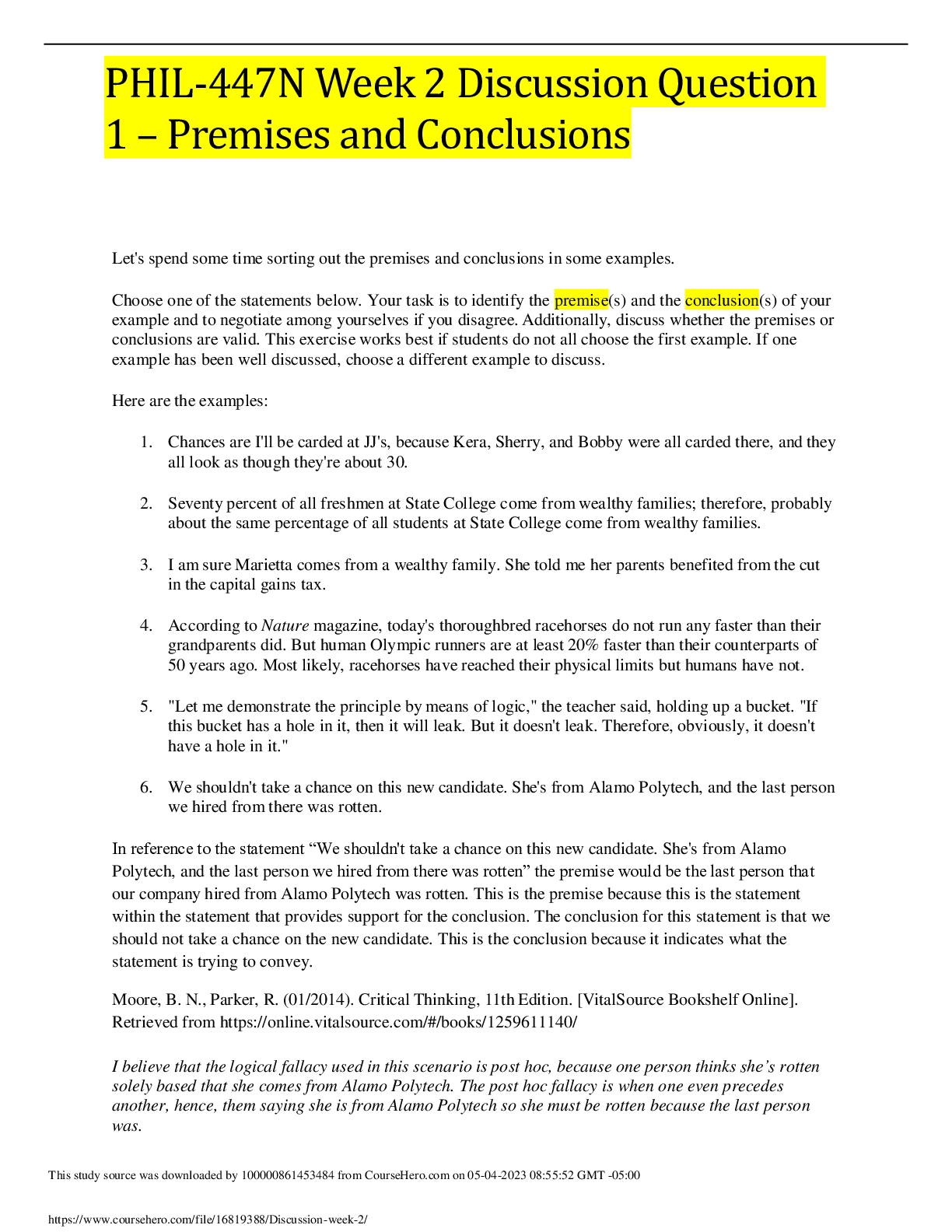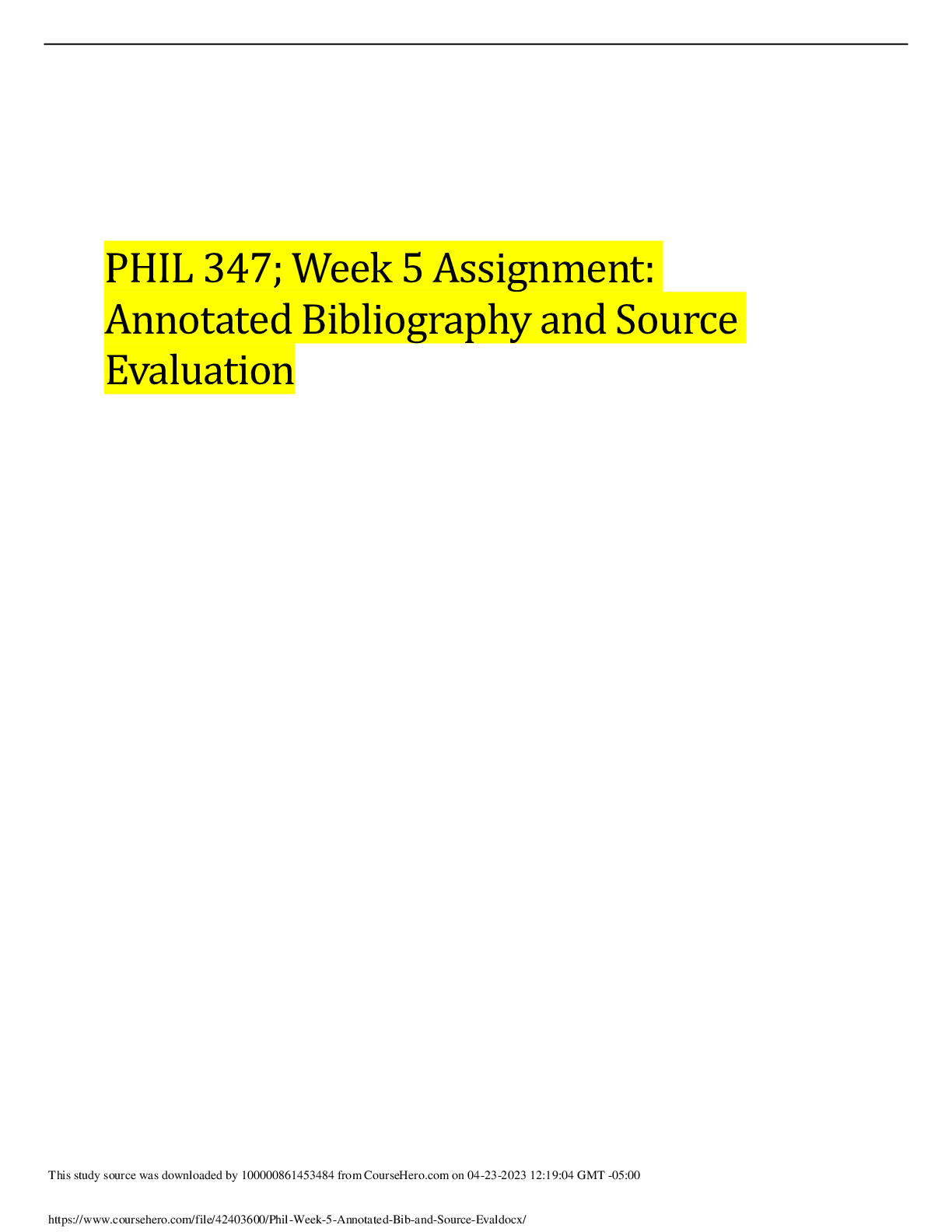Political Science > ASSIGNMENT > POLI-330N Week 6 Assignment: Part I: How the Courts Address or Respect Our Rights as Citizens – Ou (All)
POLI-330N Week 6 Assignment: Part I: How the Courts Address or Respect Our Rights as Citizens – Outline: Roe vs Wade - Graded An A
Document Content and Description Below
Summary of the Case The US has come a long way in amending and protecting civil rights and civil liberties. The former implies legal rights which offer protection to an individual from any form ... of discrimination, such as racial discrimination, while the latter implies freedoms that are guaranteed to an individual by the Constitution, for instance, freedom of speech (Greenberg & Page, 2018). Historical cases have helped in the amendment of civil rights and civil liberties that are being enjoyed by Americans today. One of such cases is Gitlow v. New York (1925) which was associated with freedom of speech. The Gitlow v. New York case involved Benjamin Gitlow, who was a journalist, and a member of the Socialist Party of America (Ballotpedia, n.d). In July 1919, Gitlow published the ‘Left-Wing Manifesto’ and made 16,000 copies of the document which called for revolution through revolutionary mass action and strikes. He was charged and convicted of anarchy, which was against New York’s criminal anarchy law. He appealed in New York Courts of Appeal which upheld his conviction. Gitlow later appealed in the United States Supreme Court which also upheld his conviction. Case Outline 1) Title: Gitlow v. New York, 268 U.S. 652 (1925) 2) Facts of the case: ➢ The case involved Benjamin Gitlow (defendant) and New York State (plaintiff) (Ballotpedia, n.d) ➢ The case was about civil liberties (freedom of speech) ➢ Gitlow was charged and convicted of anarchy ➢ The appeals made by Gitlow were unsuccessful as his conviction was upheld by New York Courts of Appeal and the US Supreme Court 3) History of the case: ➢ The case started after Gitlow published the Left Wing Manifesto ➢ The case was in line with other similar cases that took place after WW1 which were against leftists after the Red Scare ➢ On February 11, 1920, Gitlow received a sentence of up to ten years in prison ➢ Gitlow’s conviction was based on New York’s anarchy law which was passed in 1902 (LexixNexis, n.d) ➢ Gitlow appealed the case in New York Courts of Appeal and the US Supreme Court, both of which upheld his conviction 4) Legal questions: ➢ “Are the First Amendment's protections of freedom of expression and freedom of the press essential liberties such that denial of these by a state government constitutes a denial of due process prohibited under the Fourteenth Amendment (Ballotpedia, n.d)?” ➢ “As applied and construed, did a New York statute prohibiting criminal anarchy unconstitutionally restrict Gitlow's freedom of expression and of the press in violation of the First Amendment (Ballotpedia, n.d)?" 5) Decision or holdings: ➢ New York Courts of Appeal ruled in favor of the plaintiff ➢ The US Supreme Court also decided for the plaintiff as the defendant’s conviction was withheld ➢ The conviction was withheld on the basis that the government can suppress speech that directly incites unlawful removal of a government (Ballotpedia, n.d) 6) Verdict and opinion: ➢ There were seven judges who decided against the defendant and two judges who decided for the defendant (LexixNexis, n.d) ➢ The concurring opinion was that Gitlow had failed the bad tendency test and the language used by the defendant was direct incitement that was capable of unlawfully overthrowing a government ➢ The dissenting opinion was that there was no clear and present danger to overthrow the government ➢ Despite upholding Gitlow’s conviction, the US Supreme Court ruled that freedom of speech as well as that of the press is protected by the First Amendment and they are fundamental personal rights and liberties that should be protected by the Due Process Clause of Amendment XIV The Gitlow v. New York was a landmark case in the US as it was the beginning of the incorporation doctrine era thus enabling not only people from the New York State to benefit but also across the entire country as new limits were put on States and freedom of speech and press was considered a fundamental human right and liberty that should be protected under the Due Process Clause of the 14th Amendment. References Ballotpedia. (n.d). Gitlow v. New York. https://ballotpedia.org/Gitlow_v._New_York Greenberg, E. S & Page, B. I. (2018). The Struggle for Democracy, 2018 Elections and Updates Edition. (12th ed.). Pearson. LexixNexis. (n.d). Gitlow v. New York - 268 U.S. 652, 45 S. Ct. 625 (1925). https://www.lexisnexis.com/community/casebrief/p/casebrief-gitlow-v-new-york [Show More]
Last updated: 11 months ago
Preview 1 out of 5 pages
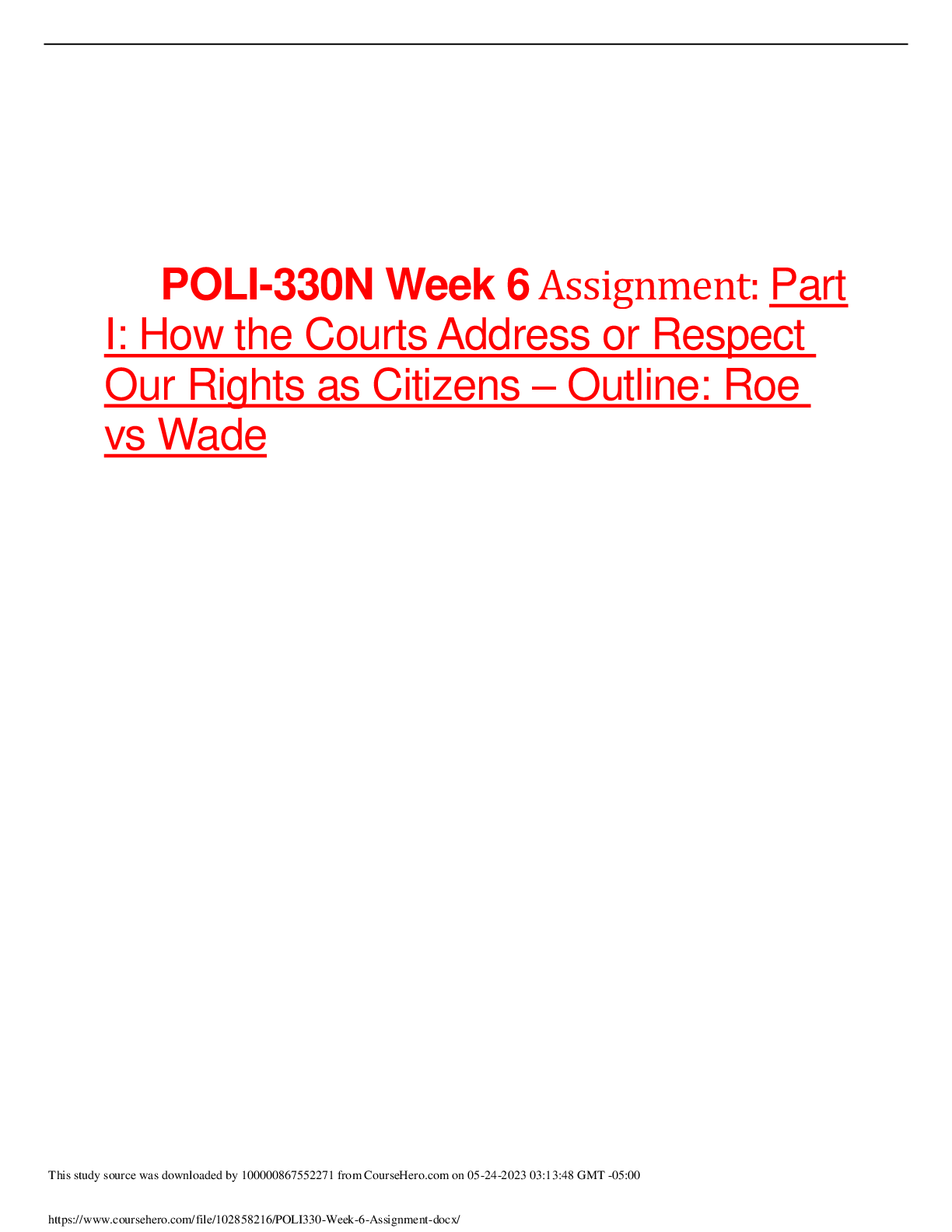
Reviews( 0 )
Document information
Connected school, study & course
About the document
Uploaded On
May 24, 2023
Number of pages
5
Written in
Additional information
This document has been written for:
Uploaded
May 24, 2023
Downloads
0
Views
79


